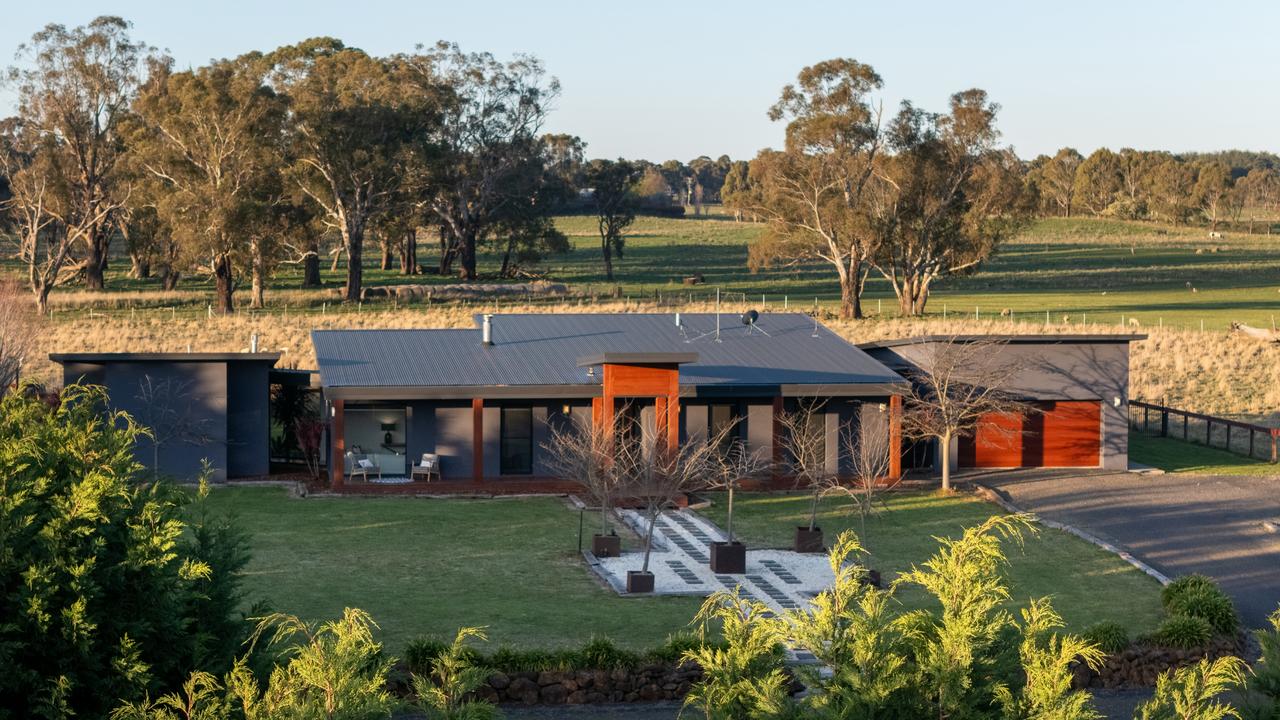Planned legislation tackling misleading property auction prices has industry abuzz
WHEN is an auction not an auction? When the bidders already know the price of the property.

Q: When is an auction not an auction? A: When the bidders already know the price of the property.
It is a wry joke doing the rounds of real estate agents as the industry forecasts upheavals to the auction system under Consumers Minister John Rau's planned new legislation.
Industry leaders say it could spell the end of the auction system. The Government says it will make it more transparent.
And prospective buyers may find marketing prices on auction properties artificially inflated by nervous sellers.
Among changes proposed to laws governing auctions, the reserve price - at which the vendor must sell - must be no higher than 10 per cent of the ballpark price indicated when the property is first listed.
For example, if a property comes on the market with an indicative price of $400,000, when the auction is held some weeks later, potential buyers will know the reserve can be no more than $440,000.
They can bid higher, but will know what minimum price the seller is happy to accept.
Acting Consumers Minister Patrick Conlon says this is good news for buyers.
"The Government is planning to introduce new laws to prevent misleading and unrealistic auction prices," he said.
"Under the proposed legislation, the reserve price can be no more than 10 per cent above the acceptable selling price.
"This will ensure that the prospective purchaser will have a reasonable indication of the reserve price before the auction.
"Currently, under the Land and Business (Sale and Conveyancing) Act, the reserve is not regulated and there is no nexus between the reserve and the marketing of a property."
Industry figures are not so sure - they point to flaws in the legislation and say the existing legislation from 2008 is adequate to protect consumers from under-quoting.
They also note no one knows the true value of a property until someone buys it - the basis of an auction.
Consultation on the draft legislation closed on July 26 - and the Government is now reviewing submissions, with an intention to introduce it into the Parliament later this year.
Leading real estate agents Michael Brock and Bernard Booth publicly warned Premier Jay Weatherill the auction system would be destroyed during a robust Q&A session at a recent industry lunch.
Mr Brock told The Advertiser he supported Mr Rau's previous reforms but said the new legislation "will destroy the auction system".
"Half the reason people go to auctions is to gauge public opinion," he said.
"If the reserve price is basically disclosed three weeks beforehand, when the property is listed - when no one really knows how much interest there will be in the property and prior to public feedback - it could lower expectations, which will penalise the vendor.
"If there is a lot of interest during the sale period it will be too late to increase the reserve.
"Vendors also have rights and should be able to increase the price more during the lead-up period if they discover there is a lot of public interest in the property.
"For example, if during the sales period you discover two neighbours both want the property and are prepared to pay a premium, you would have no opportunity to increase the reserve."
The legislation would not stop a bidding war under such a scenario - it would just let both hypothetical neighbours know the price point the property has to be sold at rather than being passed in.
However, Mr Brock also warned the legislation could lead to vendors putting unrealistically high indicative prices on their properties so they are not trapped by a low reserve if there is strong market interest, but that this could stall the real-estate market as buyers baulk at properties with inflated marketing prices.
"Buyers will feel misled and that is not good for the credibility of the vendor or the industry," he said.
Mr Brock also noted it could lead to vendors bypassing auctions and instead inviting expressions of interest.
He added this could result in unscrupulous operators falsely suggesting that other potential buyers had already lodged far higher expressions of interest.
"In an auction it is open and transparent, it is the marketplace at work," Mr Brock said. "Under this proposal vendors and purchasers both will shy away from auctions - it will destroy the auction system," he said.
Richard Thwaites from LJ Hooker was less pessimistic but noted the present legislation allowed for prosecution in cases of blatant underquoting.
"The legislation already works well. If you advertised a property for $500,000 and it sells for $650,000 you might get a 'please explain', but it might simply be a case of an auction situation where several people really wanted the property, which is pretty good news for the vendor," he said.
"This proposed situation will penalise the seller. If buyers know the reserve is no more than 10 per cent more than the $500,000 indicative price, will anyone be prepared to go much higher?
"It is a negative move, but the sky won't fall in."
Government officials counter criticism by noting they have received a stream of complaints from prospective buyers who had paid for services including building inspections prior to auction, only to see sales at far higher prices than advertised.
They say all prospective purchasers would have a reasonable idea about the reserve prior to auction.
The proposed system also will allow far more easy prosecutions.
For example, if an indicative price of a property is $500,000 and it is passed in at $560,000 - more than 10 per cent above the indicative price - it will be a clear case of breaking the law, rather than seeing drawn-out legal arguments about deliberate under-quoting versus unexpected buyer interest.
Real Estate Institute of Australia SA chief executive Greg Troughton said many prospective buyers know what they want but do not necessarily know what the market is asking.
"If the reserve price is known from day one it will have a dousing effect on expectations," he said.
"Under this scenario, if vendors know they can never go north of the indicated price regardless of market interest, you might get people tempted to over-quote when they go on the market and you will end up with properties just sitting there.
"If this goes through it will create enormous uncertainty around the auction process."
The Opposition is seeking the public's view before making a decision on the proposed legislation.



